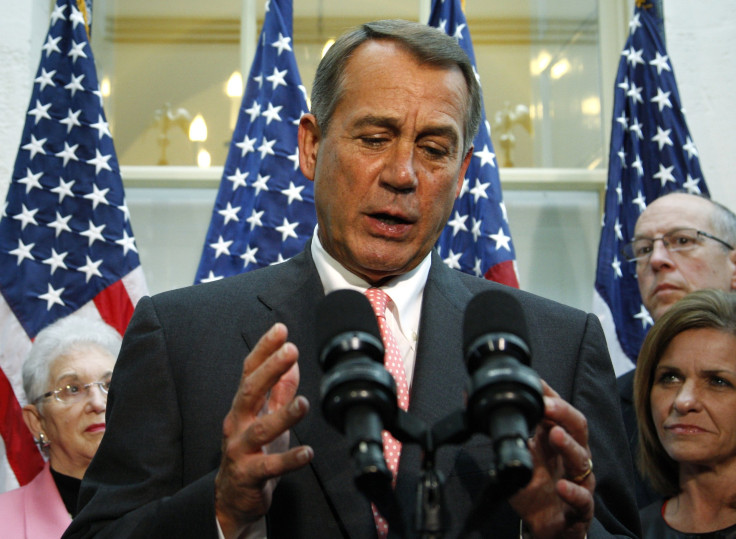Boehner Blasts ‘Ridiculous’ Conservative Groups Opposing Budget Deal

House Speaker John Boehner, R-Ohio, on Wednesday blasted conservative groups because of their opposition to a new budget deal that increased federal spending levels to a little more than $1 trillion.
Some conservative groups have already knocked the deal -- some even before it was announced Tuesday evening -- calling it “bad policy and bad politics.”
Boehner, who now has the task of gathering support from his caucus, known to have rebuffed him in the past, has dismissed the actions of the deal’s critics as merely “ridiculous.”
“You mean the groups that came out and opposed it before they ever saw it,” a clearly irritated Boehner said during a briefing with reporters. “They’re using our members and they’re using the American people for their own goals. This is ridiculous. Listen, if you are for more deficit reduction you are for this agreement.”
Under the deal brokered by Rep. Paul Ryan, R-Wis., and Sen. Patty Murray, D-Wash., spending levels will increase for both fiscal 2014 and 2015, and the impact of the sequester has been blunted. There will be more than $20 billion in deficit reduction.
House leaders praised the deal for cutting the deficit and achieving permanent pension reform for government employees, and for not increasing taxes.
“It is consistent with Republican efforts all along to try and replace the sequester with permanent savings that just make a lot more sense,” Majority Leader Eric Cantor, R-Va., said.
Ryan, who heads the House Budget Committee, told reporters that Democrats and Republicans were out to find common ground and find ways to make the divided government work. He added that the budget passed by the House earlier this year would’ve been ideal but that in a divided Washington, the reality is that lawmakers won’t get all they want.
“So what we want to do is take a step toward that goal, a step in the direction toward that vision,” Ryan said. “And by having a budget agreement that does not raise taxes, that does reduce the deficit and produces some certainty and prevents government shutdowns -- we think is a good agreement. It is also an agreement that gives Congress the power of the purse back.”
For about three years, the government has been passing continuing resolutions -- temporary stopgap measures -- to keep federal agencies operating.
© Copyright IBTimes 2024. All rights reserved.






















